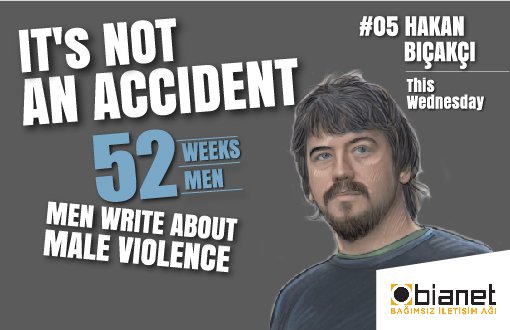Click to read the article in Turkish/Kurdish
A latent form of male violence is the tendency to side with power. To divide people into two categories as "winners" and "losers", and to try to get in with the winners. To go blind by losing one's conscience through unquestioning identification with the winner. And to lose the ability to commiserate as the power increases. Save for a few exceptions, this is the typical male attitude. Although I was just a child when I watched Rocky IV (1985, Sylvester Stallone), there was a part in the finale of the movie that I clearly recall finding strange without knowing why.
In the movie, Rocky goes to Moscow to fight the Russian boxer Ivan Drago. He is on an away game. The entire audience supports the Russian boxer. In the beginning of the match, Ivan Drago has the upper hand. Rocky takes punch after punch from the evidently unfeeling and beastly Ivan Drago as the Russian crowd cheers wildly.
He is at the end of his rope. But after much beating, he quickly collects himself and soon has the upper hand. A different game has begun.
When Rocky starts to rain down punches, the Russian boxer's ardent fans slowly change their cheer, the hall that just echoed "Drago, Drago, Drago" now goes, "Rocky, Rocky, Rocky".
Finally smacking down his opponent in full throttle, Rocky addresses the crowd his victory speech: "During this fight, I've seen a lot of changing, in the way you felt about me, and the way I felt about you. (...) if I can change, and you can change, everybody can change."
This speech, which is made in a setting with portraits of Marx, Engels and Lenin on the walls and a huge red star right above, surely registers as a most banal Cold War propaganda.
However, there is another, darker issue at hand here, which is the will to side with the powerful. This vapid scene that struck me as ridiculous and tacky as a child is much more disturbing to me today.
The deft story of Sivas (Kaan Müjdeci, 2014), which I watched a couple of years ago, had also served as a solemn reminder to me of this bizarre social phenomenon.
At the start of the film, an elementary-school-age boy named Aslan adopts a Kangal [Anatolian shepherd dog] he finds left to die after a dog fight. He takes care of it and nurses it back to health.
Aslan becomes friends with the healed animal and calls him Sivas. However, this is no Lassie story. Sivas is a fighter dog. He must take part in fights instead of just sitting around in the garden. This advice, given by all the men around Aslan as though in unison, turns into a kind of societal pressure.
Fearing something bad will happen to the newly healed dog, Aslan is wary of this advice. "I won't put my dog into fights," he says. But the male world that surrounds him gradually makes him change his mind.
Aslan, though still hesitant, starts putting Sivas into fights. As the dog keeps winning, he starts enjoying it. Initially on the side of the underdog, Aslan, as he grows up, becomes drawn to the male world that wants to side with the winner.
He is torn between a growing sense of pity for Sivas and the wish to keep him around as proof of his masculinity. The terror of his dog getting hurt and the desire to gain influence on the way to becoming a man surge side by side in his little body.
If the tendency to side with the powerful is a form of latent male violence, certainly there are also cliché notions that cover up, legitimize male violence, making it seem almost endearing.
These belong to a rhetoric constantly pushed through mainstream narratives, popular culture and folk sayings. I will try to summarize them by listing the first ones that come to mind:
- Men are like children. There is no telling what they will do when or where.
- There is only so much a red-blooded man can take.
- Sometimes you need to resort to violence for a "higher moral principle".
- The task of personally ensuring justice sometimes falls on the men. In such situations, extralegal protection of order must come into play, and the individual must seek his own justice.
- If the men have somehow agreed, if they have made an alliance, all is well. Otherwise, there is trouble.
- You won't find peace until you get your revenge.
- In some cases, you need to trust your emotions, not your mind.
- When in love, there's nothing one won't do! (HB/ŞA/APA/PU/IG)
* Images: Kemal Gökhan Gürses
CLICK TO READ ALL "52 MEN 52 WEEKS" ARTICLES
|





